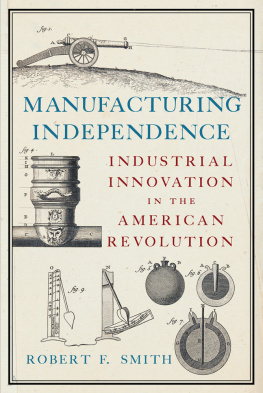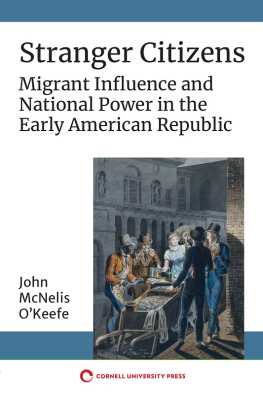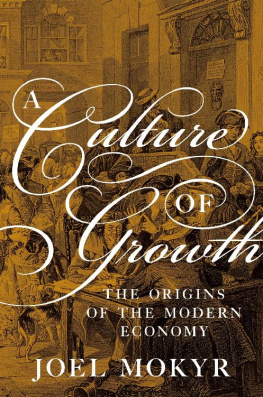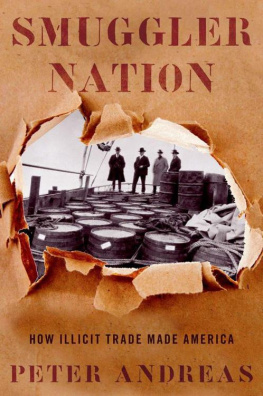Introduction
Who hasnt heard of Eli Whitney and his cotton gin? Every schoolchild, from New England to the Middle East, learns of the mechanical whiz who went down south in the early 1790s and developed a contraption that separated the cottonseed from its surrounding fiber. Whitneys machine removed the most daunting obstacle to the production of cottonthe labor-intensive process of separationand made the growing of short-staple cotton economically profitable. It revived southern agriculture, boosted western expansion, generated capital for northern industrialization, and entrenched the American addiction to chattel slavery. The man who left his mark on every major aspect of the nineteenth-century United States has been immortalized as towns, neighborhoods, streets, museums, and websites took his name. Visitors to New Haven stop by the Grove Street cemetery to have their pictures taken by Whitneys pretentious gravestone, modeled after that of the Roman general Scipio who defeated Carthage.
The machine that secured Whitneys place in the pantheon of great Americans, however, drained his financial resources. Whitney did not rush to secure a patent for his invention, and a few local planters in Georgia, upon hearing of the machine, broke into his workshop, stole a model, and before long duplicates appeared all over the south. Whitney returned to Connecticut in hopes of perfecting his invention, getting a patent, and returning to the south with the exclusive right of selling the machine. He secured capital by partnering with lawyer Phineas Miller. On June 20, 1793, Whitney presented his petition for a patent to Secretary of State Thomas Jefferson and the following October took an oath in New Haven in front of a notary to the effect that he was the original inventor of the cotton gin.
Whitney and Miller, however, could neither monopolize nor control the manufacturing of cotton gins. They filed suits against infringers of their patent and turned to state legislatures in search of legal remedies and monetary compensation. Yet their legal maneuvers and lobbying efforts proved frustrating. Southern manufacturers disputed Whitneys claim to originality. In Georgia, a legislative committee declined to pay him a licensing fee, citing the testimony of a Columbia county doctor who claimed he had seen a similar machine in use forty years earlier in Switzerland. In the numerous court cases that Whitney and Miller filed, southern defendants brought forth witnesses who claimed to have seen the cotton gin in action decades earlier in England and Ireland. This argument proved so effective that Whitney contemplated traveling to Europe in 1799 to file for a patent for his cotton gin in all nations that had cotton-producing colonies.
Whitney stayed in America and his legal fortunes improved. He won a few cases in southern courts and persuaded the state legislatures of North and South Carolina to pay him some licensing fees. Yet, the fees he collected and the damages he won did not cover his legal costshe initiated over sixty lawsuits for patent infringements in Georgia alone. Moreover, only in 1807, some fifteen years after his famous trip, did the courts validate his exclusive claim to the cotton gin. The legal wrangling embittered him. Shortly before his death he
The challenge to Whitneys claim of originality rested on supposedly preexisting devices already in use outside the borders of the United States. Southern juries and state legislatures believed that the cotton gin was brought over from Europe rather than invented by Whitney because just about everywhere they turned they encountered imported technology. Whitneys failure to cash in on the fruits of his invention highlights the central paradox of the emerging American understanding of intellectual property. The United States enacted a patent law in 1790 that restricted patent protection exclusively to original inventors and ruled that prior use anywhere automatically invalidated a patent. Alas, this principled commitment to absolute intellectual property had little to do with reality. Smuggling technology from Europe and claiming the privileges of invention was quite common and most of the political and intellectual elite of the revolutionary and early national generation were directly or indirectly involved in technology piracy. And they were following in the footsteps of their ancestors. Americans had welcomed such practices since the early days of European colonization. The American nickname Yankee originated in the Dutch word for smuggler, and suggests that violation of European economic restrictions had been second nature to the colonists from the early days of settlement.
The gap between law and practice is still with us. Presently, the battle over intellectual property has risen to the forefront of contemporary international contests in which developed and developing nations often find themselves in opposing camps. As developed nations moved to high-tech industries and services in the last few decades of the twentieth century, they came to rely on knowledge as the central component of their economies. The movement of manufacturing to the developing world where raw materials are readily available and labor costs are low has rendered intellectual capital the most important asset of developed nations. International organizations have adopted Western standards of intellectual property and have erected an international agencythe World Intellectual Property Organization (WIPO)dedicated to helping to ensure that the rights of creators and owners of intellectual property are protected worldwide and that inventors and authors are, thus, recognized and rewarded for their ingenuity. For all their economic and diplomatic might, however, developed nations have thus far failed to enforce their intellectual property regime. In 1999 the European Union issued a study of the gargantuan cost of counterfeiting and piracy to the West. The infringements range from computer software to spare automobile parts, from musical recordings to medical instruments. Hundreds of billions of dollars are lost annuallythe software industry alone loses almost $12 billion a year, and 80 percent of the software used in the Third World is pirated. The missing revenue and trade in pharmaceuticals alone are responsible for the loss of some 200,000 jobs in the United States.
Developing nations, on the other hand, resist Western standards of intellectual property, charging that they are economically self-serving and that the developed world, led by the United States, applies these standards in an inconsistent manner. Societies struggling to lift their people out of abject poverty and to provide them with minimal health care cannot afford the luxury of protecting the intellectual property of the rich and powerful. Many consumers in the developing world who live on a dollar a day cannot afford to pay for an officially sanctioned popular music CD or computer software program. In the name of protecting intellectual property, Western-based companies have marshaled international agencies to enforce their claims with mind-boggling cruelty. Drug patents, in particular,
The paradoxes of the age of Whitney are still with us. The United States champions worldwide originality and innovation as objective criteria that establish a claim to intellectual property. It is a home for thousands of tinkerers and innovators who develop mechanical solutions to practical problems. And just like two centuries ago, it draws on the education and initiative of foreign nationals. Immigrants form the rank and file of teaching and research at departments of natural sciences in American universities. Engineers from all corners of the globe have turned Silicon Valley into the leading center of innovation and creativity of our time. And as America prospers, those left behind in the immigrants homelands wonder how to stop the brain drain and how to persuade their brightest not to opt for research and business opportunities in North America. The same questions that plagued Whitneys generation are still with us. Does intellectual property transcend political borders? Can states claim part ownership over the inventions and innovations of their citizens? Should states respect each others patent and intellectual property laws even at great cost to the welfare of their own citizens?







